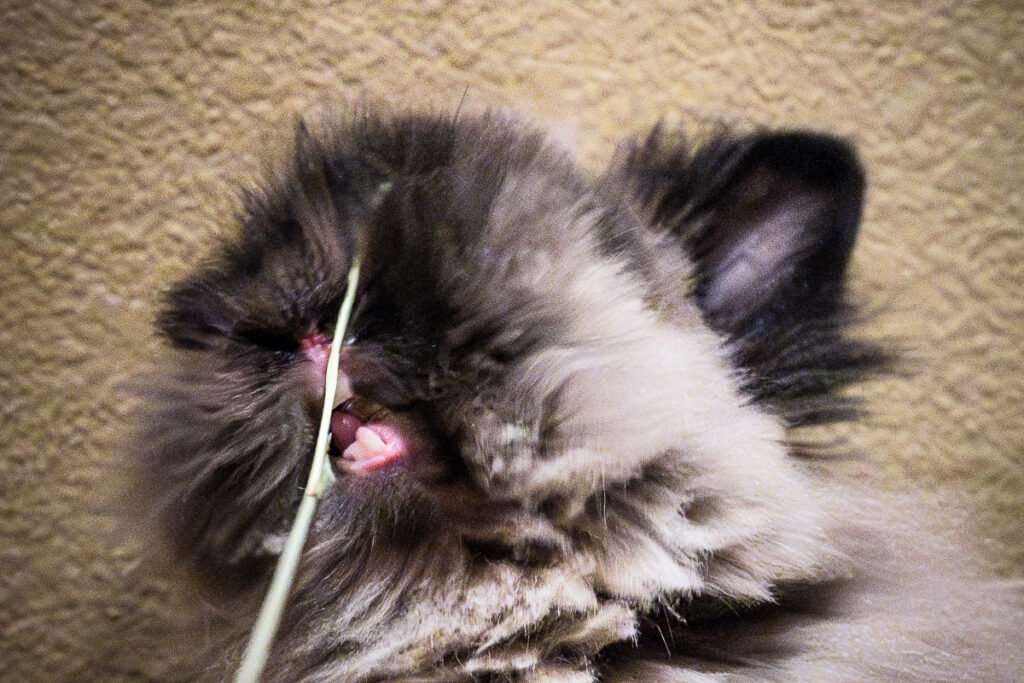Most bunnies will never bite a human, and those who do are often the most capable of loving relationships. If you understand why bunnies bite, you can avoid being bitten.
Testing. It’s common for baby rabbits to go through a period of testing their teeth. If your bunny decides to test his teeth on you, I advise a small screech. This is a sound rabbits make in dire distress. He will understand that this is serious.
Move over. Rabbits may nip whatever is in their way. It can be another rabbit who is blocking the water bottle or a human arm that is confining a rabbit to a lap. Screeching may work, but better yet, avoid using part of your body as a barricade.
Zealous grooming. When grooming each other, rabbits pull out burrs and chew foreign particles entangled in each other’s fur. Keep this in mind when your rabbit friend is licking your sleeve or pant leg and comes to a seam or wrinkle that could be interpreted as foreign.
Defense. Objects coming from below eye level may appear threatening. Don’t stick your hand up to a rabbit’s nose to be sniffed as you would to a dog or scratch under the chin as you would a cat. Also, your extremities, hands or feet, may be judged separately from the rest of yourself, so don’t assume that your bunny doesn’t like you if he distrusts your hands. It may take him a while to perceive those foreign objects as part of you.
Side approach. A human hand is all the more threatening to a shy rabbit when it is reaching in through a small side-opening cage door. As you invade her “safe” haven, she backs into the far corner. You must find a way to approach from the top, even if it means installing a new top-opening door or enlarging the one on the side. Or consider discarding the cage altogether in favor of a pen.
Aromatic fingers. If you have been eating pretzels or dicing carrots, don’t stick your fingers immediately into bunny’s chomping area.
Possessiveness. Unspayed females (or unneutered males) may be particularly protective with their possessions, and it’s best to clean the cage or pen when it is unoccupied.
Misdirection. A human referee may incur a misdirected bite for trying to intervene between two rabbit adversaries—in much the same way that a person gets scratched by grabbing a cat from an attacking dog. A bite-attack may also be triggered by the scent of a “foreign” rabbit on your clothing.
HABITUAL BITERS
My most affectionate rabbits of today were once labeled biters. Their gradual but thorough transformations are described in the the essays Who Wants a Mean Rabbit?, To Love a Mean Rabbit, and, Socializing the Antisocial Rabbit. If you have a “biter,” please read these articles.
Our rule has always been to meet animosity with benevolence and avoid situations that provoke an attack. Converting a biter is a rewarding experience—one of my favorite story topics. !

